
"The Night They Drove Old Dixie Down" is a song written by Robbie Robertson and originally recorded by the Canadian-American roots rock group The Band in 1969 and released on their eponymous second album. Levon Helm provided the lead vocals. The song is a first-person narrative relating the economic and social distress experienced by the protagonist, a poor white Southerner, during the last year of the American Civil War, when George Stoneman was raiding southwest Virginia.

The Hollies are an English rock and pop band formed in 1962. One of the leading British groups of the 1960s and into the mid-1970s, they are known for their distinctive three-part vocal harmony style. Allan Clarke and Graham Nash founded the band as a Merseybeat-type group in Manchester, although some of the band members came from towns further north, in east Lancashire. Nash left the group in 1968 to form Crosby, Stills & Nash, though he has reunited with the Hollies on occasion.

"It's Too Late" is a song from American singer-songwriter Carole King's second studio album, Tapestry (1971). Toni Stern wrote the lyrics and King wrote the music. It was released as a single in April 1971 and reached number 1 on the Billboard Hot 100 and Adult Contemporary charts. Sales were later platinum-certified by the RIAA. Billboard ranked "It's Too Late" and its fellow A-side, "I Feel the Earth Move", as the No. 3 record for 1971.

"Ferry Cross the Mersey" is a song written by Gerry Marsden. It was first recorded by his band Gerry and the Pacemakers and released in late 1964 in the UK and in 1965 in the United States. It was a hit on both sides of the Atlantic, reaching number six in the United States and number eight in the UK. The song is from the film of the same name and was released on its soundtrack album. In the mid-1990s, a musical theatre production, also titled Ferry Cross the Mersey, related Gerry Marsden's Merseybeat days; it premiered in Liverpool and played in the UK, Australia, and Canada.

"Proud Mary" is a song by American rock band Creedence Clearwater Revival, written by vocalist and lead guitarist John Fogerty. It was released as a single in January 1969 by Fantasy Records and on the band's second studio album, Bayou Country. The song became a major hit in the United States, peaking at No. 2 on the Billboard Hot 100 in March 1969, the first of five singles to peak at No. 2 for the group.

Harold Allan Clarke is an English rock singer, who was one of the founding members and the original lead singer of the Hollies. He achieved international hit singles with the group and is credited as co-writer on several of their best-known songs, including "On a Carousel", "Carrie Anne", "Jennifer Eccles" and "Long Cool Woman in a Black Dress". He retired from performing in 1999, but returned to the music industry in 2019. Clarke was inducted into the Rock and Roll Hall of Fame in 2010.
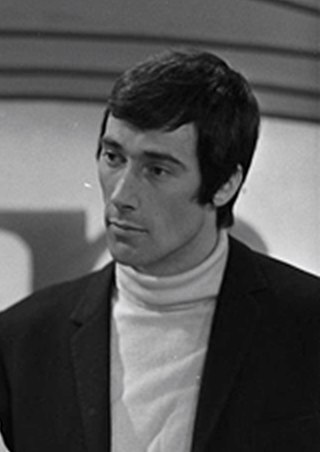
Roger Frederick Cook is an English singer, songwriter and record producer, who has written many hit records for other recording artists. He has also had a successful recording career in his own right.
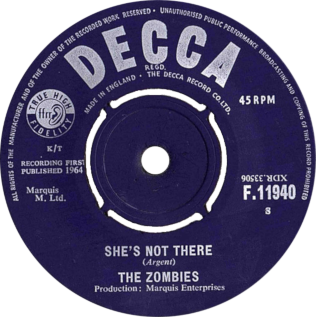
"She's Not There" is the debut single by British rock band the Zombies, written by keyboardist Rod Argent. It reached No. 12 in the UK Singles Chart in September 1964, and No. 2 on the Billboard Hot 100 in the United States at the beginning of December 1964. In Canada, it reached No. 2.
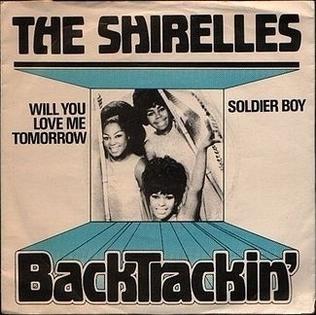
"Will You Love Me Tomorrow", sometimes known as "Will You Still Love Me Tomorrow", is a song with words by Gerry Goffin and music composed by Carole King. It was recorded in 1960 by the Shirelles at Bell Sound Studios in New York City, and hit number one on the Billboard Hot 100 chart. The song was the first by an African-American all-girl group to reach number one in the United States. It has since been recorded by many other artists, including a version by co-writer King released on her 1971 album Tapestry.

"I Can See Clearly Now" is a song written and recorded by American singer-songwriter Johnny Nash. It was the lead single from his twelfth album, I Can See Clearly Now (1972), and achieved success in the United States and the United Kingdom when it was released in 1972, reaching number one on the US Billboard Hot 100 and Cash Box charts. It also reached number one in Canada and South Africa. The song has been covered by many artists throughout the years, including a hit version by Lee Towers that reached no. 19 in the Dutch Top 40 in 1982, and another recorded by Jimmy Cliff for the motion picture soundtrack of Cool Runnings that peaked at no. 18 on the US Billboard Hot 100 in 1993.

"Nathan Jones" is a song by American girl group the Supremes from their twenty-third studio album, Touch (1971). It was released on April 15, 1971, as the album's lead single. Produced by Frank Wilson and written by Kathy Wakefield and Leonard Caston, "Nathan Jones" was one of eight top-40 entries the Supremes recorded after its original frontwoman, Diana Ross, left the group for a solo career.
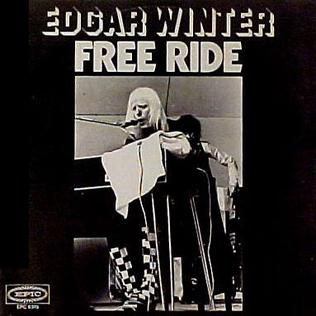
"Free Ride" is a song written by Dan Hartman and performed by the Edgar Winter Group from their 1972 album They Only Come Out at Night, produced by Rick Derringer. The single was a top 15 U.S. hit in 1973, reaching number 14 on the Billboard Hot 100 and number 10 on Cash Box. In Canada, it peaked at number 8.

Terence Sylvester is an English musician and songwriter. He is a former member of the Escorts, the Swinging Blue Jeans (1966–1969), and the Hollies. In the latter role, he took on the high parts formerly sung by Graham Nash, who had left the band in December 1968.

Distant Light is a 1971 album released by the Hollies, their 11th UK album and their last before brief departure of lead vocalist and founding member Allan Clarke, and reputedly the first album to come out of AIR Studios. The album spawned two hit singles: the Allan Clarke penned "Long Cool Woman in a Black Dress", which peaked at number two in the US and number 32 in the UK; and Tony Hicks penned "Long Dark Road", which reached number 26 in the US. The US version of the album peaked at number 21 in the album charts. The summer scene on the cover is rendered as a winter scene on the next Hollies album Romany.

"Clean Up Woman" is a song by Betty Wright from her second studio album, I Love the Way You Love (1972). Written and produced by Clarence Reid and Willie Clarke, it was released in November 1971 in the U.S. as a 7" single with "I'll Love You Forever" on the B-side. The song's distinctive guitar lick was played by Willie "Little Beaver" Hale.

The Hollies' Greatest Hits is a compilation of singles by the Hollies, released on Epic Records in April 1973. It includes hit singles by the group on both the Epic and Imperial labels over a time span of 1965 to 1972. It spent seven weeks on the Billboard 200 charts, peaking at number 156.

"Stay with Me" is a song by English rock band Faces, written jointly by lead singer Rod Stewart and guitarist Ronnie Wood. Released from the band's third studio album A Nod Is As Good As a Wink... to a Blind Horse (1971), it became their only major hit in the United States, although they had a further three Top 20 singles in the UK chart. The song has also appeared on various Faces compilations and on albums by both songwriters. The lyrics describe a woman named Rita, who has a face that she has "nothing to laugh about", and with whom the singer proposes a one-night stand, on the condition that she be gone when he wakes up.

"It Keeps You Runnin'" is a song by the American rock band The Doobie Brothers. The song was written by band member Michael McDonald, and served as the third single from their sixth studio album Takin' It to the Streets (1976). It was also covered by Carly Simon the same year and released as the lead single from her sixth studio album Another Passenger.
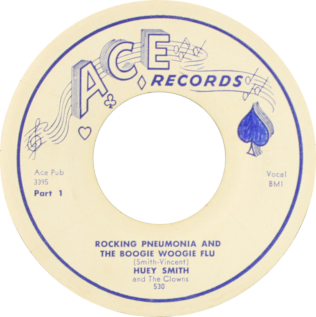
"Rockin' Pneumonia and the Boogie Woogie Flu" is a song written and originally recorded in 1957 by Huey 'Piano' Smith, who scored a minor Billboard hit with it, peaking at No. 52 on the Top 100 chart, and a more successful No. 5 on the Most Played R&B by Jockeys chart.

"Skating Away on the Thin Ice of the New Day" is a song by British progressive rock band Jethro Tull. It was released on their album War Child in 1974. Written as a comment on global cooling for the band's aborted "Chateau D'isaster" album, the song was reworked in 1974 for War Child.




















